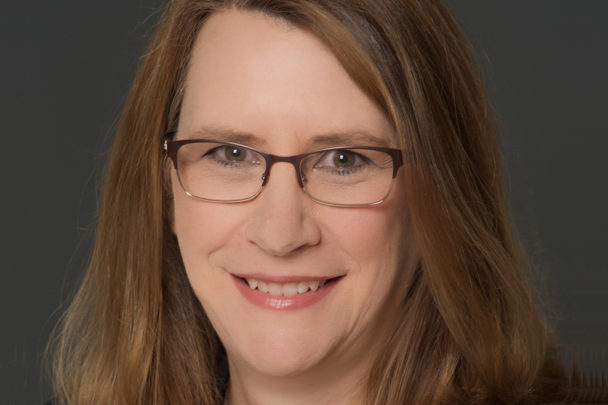
Francesca Durand, Ph.D., found her calling as an educational researcher in graduate school, and now shares her expertise as a research methods professor in Russell Sage College’s Educational Leadership doctoral program and as member of a research team focused on improving educator practice in K-12 schools.
In May 2024, she received Sage’s Terry M. Cannizzaro ’11,’14 Award for Outstanding Graduate Faculty, after being nominated by the doctoral candidates she advises during their own dissertation research.
In the following Q&A, she shares more about her commitment to “live what she teaches” as an active researcher and professor, and how she tries to make the dissertation process (a little) less daunting.
What attracted you to your work, preparing future school district leaders?
I come from a family of educators. My mom was a school librarian and my dad a high school math teacher, so I was raised on the value of education. During graduate school, I was fortunate to be involved in research on school leadership and was able to observe and study the important role that school leaders have in creating systemic change to improve the lives of students, staff, and communities. Being involved in research and sharing that with others to help them improve their own practice is my guiding principle.
How do you use your own experience in education and education research to prepare future school district leaders?
As a research methods professor, I believe in the importance of living what you teach. For more than a decade, I have been privileged to be involved with a research team that focuses on informing, inspiring, and improving educator practice in K-12 schools (https://ny-kids.org). Sharing my research findings through publication, national conferences, and local presentations allows me to teach from a place of experience. I hope to be able to make a complex and challenging subject a place of joy for my students.
Please tell me more about your approach to teaching — what strategies or techniques do you use to connect with graduate students? What do you hope they take from your courses?
I teach primarily research methods courses. My students tell me that one of the scariest things about deciding to become a doctoral student is the dissertation. My students are expert professional leaders with years of experience in leading schools, districts, and other organizations, but very few have ever been involved in conducting research from start to finish. It is my goal to make them love the research process, value the outcomes, and understand how their research adds to the educational field for years to come. As such, it is important to me that they have the opportunity to gain foundational understandings of research methods, build trust with an instructor or chair, and learn from them over the course of a year to design, develop, and implement their own research.
My method of teaching is probably best described as firm but fair: I am strict about doing things the right way and making sure that everyone knows that there is a process and a proper way to do things. I strive to find kind ways to explain that, to reassure students that they are capable, and to make sure that everyone gets what they need to meet those standards.
Do you have a favorite course to teach?
Absolutely! As I stated, I am fortunate to be with my students for over a year as I guide them through the dissertation process. In their second semester with me, during a challenging summer schedule, we begin to design and develop their own individual projects. This is when I get to see the light come into their eyes about research! The process of designing a project takes a long time and requires multiple conversations, so I really get to know my students’ thoughts, expectations, and hopes for their research and why they want to do it.
Do you have any exciting new projects, classes, etc. on the horizon?
This fall, I am teaching a new class for me. It is the final class of the program, and I’m looking forward to working with our students as they reflect on their seven semesters with us and what they have learned. In this class, I will be able to help students think about what is next for them, professionally and academically. I always hope that students will want to publish or present their research and encourage them to do so. I am excited to be able to teach this class!
Is there anything that you would like to add?
I’m honored to be working with these professionals who trusted the Russell Sage Educational Leadership program with their advancement of learning. I don’t take that trust lightly and am thrilled that my students take their work so seriously. It is important to me that I am contributing to their practice, skills, and knowledge and to their work improving the lives of thousands of students across New York state and beyond.

